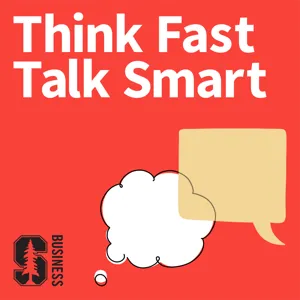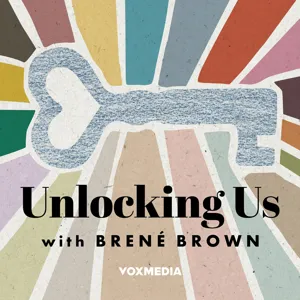Podcast Summary
Effective communication and conflict resolution for lawyers: Use 'The Manual' to listen actively, communicate clearly, and empathize with difficult supervisors or partners for improved relationships, reduced stress, and better case outcomes.
Effective communication and managing interpersonal conflicts, especially with difficult supervisors or partners, is crucial for lawyers to maintain a healthy work-life balance. The tool "The Manual" can be used to navigate these situations by encouraging active listening, clear communication, and empathy towards the other person's perspective. This technique can help improve working relationships, reduce stress and anxiety, and ultimately lead to better case outcomes. Listeners interested in learning more about "The Manual" and other cognitive science-based techniques for managing lawyer brain and stress can check out Cara Lowenstahl's new podcast, "Unfuck Your Brain," where she shares these tools with a wider audience.
Transitioning from litigation to academia due to a challenging colleague: Running away from stressful situations may not solve underlying issues, instead use tools to address root cause and improve situation.
Running away from a difficult work situation, such as leaving a job due to a stressful relationship with a partner or boss, may not solve the underlying issue. This was a lesson the speaker learned the hard way when she transitioned from litigation to academia due to a challenging 20-year veteran colleague. At the time, she felt disempowered and victimized, but now realizes that she didn't have to leave to feel better. In fact, stress often comes from within and follows us wherever we go. Law practice being a client services business, with a lot of pressure and high stakes, can contribute to this stress. However, instead of running away, the speaker suggests using tools to address the root cause of the stress and improve the situation. By staying and applying these tools, lawyers can learn to manage their stress and thrive in their careers.
Legal profession's focus on hard skills contributes to stressful work environment: The legal field's emphasis on hard skills like winning cases and lengthy experience over soft skills like management and communication leads to a demanding work environment and misaligned priorities, making it crucial to prioritize soft skills for a more balanced and inclusive work culture.
The legal profession's emphasis on hard skills, such as winning cases and lengthy experience, over soft skills like management and communication, contributes to a stressful and demanding work environment. This focus on hard skills is driven by the fact that these skills are the primary metrics for promotion within the legal field, and the billable hour system at large law firms makes it difficult to prioritize management training and development. As a result, the expectations and priorities of those who have made it to partner or director levels may not align with those of other employees, leading to misunderstandings and stress. It's essential to recognize that not everyone in the legal profession shares the same priorities and values, and efforts should be made to value and prioritize soft skills to create a more balanced and inclusive work environment.
Resistance to reforms in law culture: Law culture's pride in suffering and resistance to change makes it difficult for individuals to challenge unhealthy interactions with supervisors and partners. The 'manual' tool can help individuals recognize and challenge their assumptions for healthier relationships.
The legal profession's culture of difficulty and suffering can lead to a resistance to reforms that could improve the experience for future generations. This was evident during Harvard Law School's switch from graded to pass/fail first year, where students who had gone through the stress of grades were resistant to the idea that students coming after them wouldn't have to endure the same level of stress. This mindset, where people take pride in the suffering and resist changes, is prevalent in law culture, making it challenging for individuals to feel comfortable expressing their concerns about interactions with supervisors and partners. However, there is a solution. It's called the "manual," a powerful tool that allows individuals to recognize and challenge their assumptions about how others should behave. By recognizing that our expectations are not objective realities but rather part of our mental "manuals," we can work towards healthier and more productive relationships.
Everyone has a unique 'manual' of expectations: Recognize that everyone has their unique set of beliefs and behaviors shaped by their upbringing, experiences, and culture, leading to potential misunderstandings and conflicts. Effective communication involves understanding and respecting these differences.
Everyone carries an unspoken and often unconscious "manual" of expectations based on their upbringing, experiences, and culture. These manuals shape our beliefs and behaviors, and we assume others share the same expectations. However, this isn't always the case, leading to misunderstandings and conflicts. For instance, one person might believe in giving constructive criticism with positive affirmation, while another might only focus on pointing out what needs to change. When someone fails to follow our manual, we can make it mean something negative about ourselves, leading to feelings of inadequacy or being a bad lawyer, for example. It's essential to recognize that everyone has their unique manual and that effective communication involves understanding and respecting those differences.
The impact of feedback on our emotions and thoughts: Negative feedback can trigger negative emotions and thoughts, while positive feedback can have a positive impact. Understanding why we want others to follow our manuals and managing our reactions can help us communicate effectively and build meaningful connections.
Our emotions and thoughts are heavily influenced by the feedback we receive, especially when it comes to following our personal manuals or expectations. The speaker in this discussion emphasizes that negative feedback can trigger negative thoughts and feelings, leading to a catastrophizing mindset. Conversely, positive feedback can have a positive impact on our emotions and self-perception. However, it's important to note that we can't always control how others give feedback or follow our manuals. Instead, we should focus on understanding why we want people to follow our manuals and how it makes us feel. By recognizing the underlying thoughts and emotions, we can better manage our reactions and respond appropriately. Ultimately, the goal is to find ways to build meaningful connections and communicate effectively, rather than relying solely on external validation from others.
Understanding our response to feedback: Recognize the power of self-belief in responding to feedback, and focus on personal growth rather than external validation.
The way we perceive and react to feedback, especially when it comes to the lack of positive affirmation, is largely determined by our thoughts and beliefs about the situation. The freedom to change our response lies within ourselves, as we have the power to decide what meaning we assign to others' actions. It's essential to recognize that everyone has unique ways of engaging in constructive criticism, and not receiving positive affirmation doesn't necessarily reflect negatively on our abilities or worth. Instead, focusing on our belief in ourselves and our skills can help us remain unaffected by others' feedback, allowing us to maintain a positive outlook and continue growing in our professional and personal lives.
Focus on changing our thoughts and feelings about others' behavior instead of trying to change them: Instead of trying to change others, focus on changing our own thoughts and feelings for improved emotional reaction and increased confidence and happiness.
Instead of focusing on changing other people's behavior to match our expectations, we should focus on changing how we think and feel about their behavior. This can be done by identifying what our manual (our personal expectations and desires) says about how others should behave, and then considering how we would feel and what thoughts we would have if they did behave that way. By practicing these thoughts, we can reduce our emotional reaction to others' behavior and increase our own feelings of confidence and happiness. This approach is easier and more effective than trying to change others, which can be exhausting and ultimately unsuccessful. So the next time you find yourself upset with someone's behavior, try asking yourself these questions and practicing the associated thoughts. You may be surprised at how much your perspective changes. Additionally, if you've enjoyed this podcast and would like some personalized attention, consider leaving a review on iTunes for a chance to win a free half hour of coaching.
Get help navigating relationships with The Clutch: Join The Clutch for monthly coaching calls and daily expert guidance to improve relationships in your life
If you're feeling stuck in any of your relationships, whether it's at work, with family, friends, or in romantic situations, or even with yourself, The Clutch can help you navigate through it. The Clutch is a program that offers monthly coaching calls and daily expert coaching to help you show up confidently and unfuck any relationship in your life. You can learn more and join by texting your email address to 347-934-8861 to receive a link with all the necessary information. This program can be beneficial for improving work relationships, family relationships, friendships, romantic relationships, and even your relationship with yourself. If you're looking for guidance and support in your relationships, consider checking out The Clutch at unfuckyourbrain.com/theclutch.





